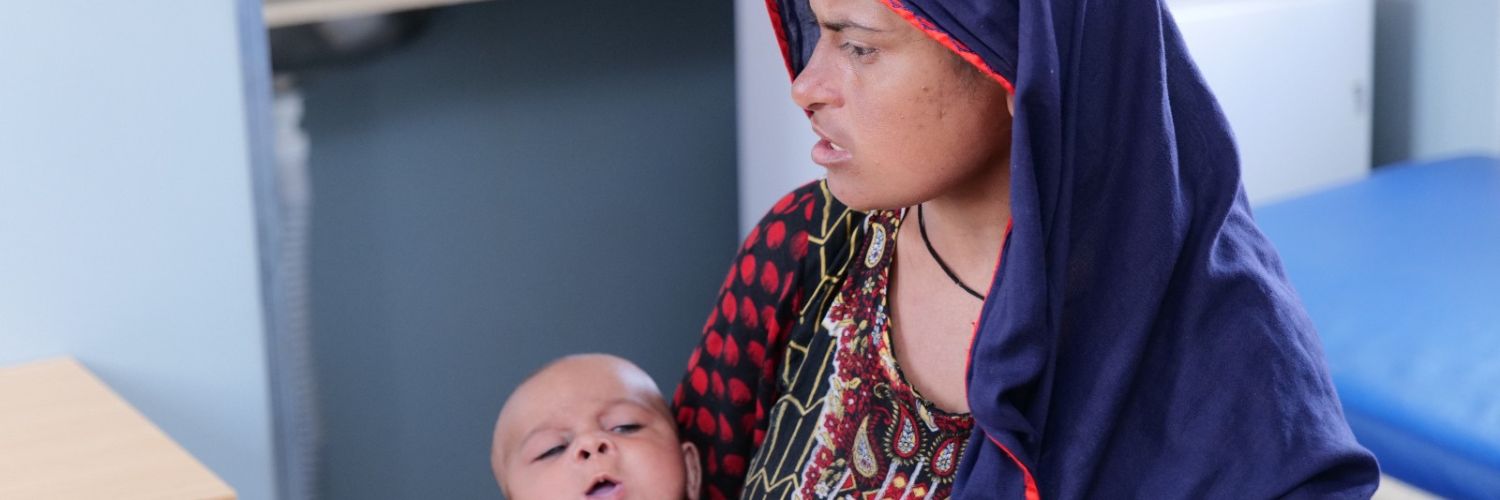Your Support Matters: World Immunization Week 2024 Advocacy Drive
In Pakistan, vaccine-preventable diseases are highly prevalent, posing a
heavy burden on the healthcare system. Such diseases constitute a major
percentage of the annual deaths in the country. The current health crisis
highlights the dire need to strengthen the immunization system.
This article aims to share the major challenges in routine immunization.
We will shed light on initiatives taken by Pakistan and discuss the required
measures. Reviewing the cause of disruptions in vaccine activities will help in
gaining a stronger understanding. Let’s begin:
Significance of Immunization
Every child is required to receive a set of inoculations during the first 15 months of life. This immunization course protects children from vaccine-preventable diseases, such as tuberculosis, typhoid, hepatitis B, pneumonia, measles, tetanus, and rubella, to name a few.
A considerable population of Pakistan in the urban slums and remote areas
become more prone to these diseases. Unfortunately, most of the children from
these areas are zero-dose children – ones who remain unimmunized.
There is a dire need to initiate novel means that can help trace these
unvaccinated children.
Expanded Programme on Immunization (EPI)
The World Health Organization (WHO) initiated a global immunization
program, known as EPI, in 1974. The core purpose of the program is to expand
immunization while reducing the burden of communicable and vaccine-preventable
diseases. The program is successfully running across various nations and will
celebrate its 50th anniversary this year.
It creates awareness regarding the right to receive vaccines,
particularly for children. Today, the program comprises 13 recommended
vaccines, along with 17 additional shots. The latter vaccines are subject to
context-based recommendations. Reflecting the significance of immunization
across all ages, the program is now known as the Essential Program on
Immunization.
Pakistan’s immunization system has also made significant progress since
its inception. However, in recent years, the program has faced severe
disruptions, mainly due to the pandemic and massive flooding in 2010. Because
of poor sanitary conditions, family displacement, and overcrowded hospitals,
many children remained unvaccinated. Additionally, the goal of eradicating
polio and measles from Pakistan has yet to be achieved.
Pakistan’s Initiatives for Immunization
The government of Pakistan introduced the DPT vaccine in the EPI program
in January 2018. This step was taken to control the growing issue of
diphtheria. In 2020, Pakistan launched an anti-tetanus campaign in Balochistan.
Tetanus, another virus that causes neonatal mortality, became a cause of
concern. Compared to other provinces, the death rate of women in Balochistan
was higher. Therefore, a dedicated campaign to boost immunity in pregnant women
was launched.
Pakistan also conducted a nationwide campaign against rubella and measles
in 2021. This program vaccinated more than 90 million children across the
nation.
The Hepatitis B vaccination program started in 2022. Its dosage is
administered thrice in the first year of life to protect against hepatitis B.
Recently, In February 2024, Pakistan conducted a second polio campaign.
The new campaign vaccinated around 45.8 million children against the
disability-causing virus. Along with the polio vaccine, children also received
Vitamin A supplements that act as an immunity booster.
World Immunization Week 2024
The World Immunization Week 2024 commemorates from April 24 to 30. It is
the time when government, private agencies, communities, front-line workers,
and NGOs come together for awareness. The collective effort is perfectly
incorporated into this year’s immunization week theme, “Vaccines Bring Us
Closer.” The week is celebrated with press conferences, walks, and community
outreach programs dedicated to immunization awareness.
Challenges Faced by Pakistan
Pakistan faces severe complexities in achieving immunization goals. Lack
of awareness, limited budget, poor healthcare facilities, and shortage of
vaccines are the core reasons behind it.
Due to the awareness gap, a major portion of Pakistan’s population shows
vaccine hesitancy. Even for the door-to-door polio vaccine facility, many
people are reluctant.
Pakistan is also prone to natural disasters. Seasonal flooding limits
vaccine delivery. Damaged roads and an inadequate supply of dosage also hinder
the immunization process.
Apart from this, the lack of planning during healthcare emergencies makes
matters worse. During the recent pandemic, Pakistan faced massive disruption in
the immunization system. Many children missed the first dose of the BCG
vaccine, administered right after birth. It was mainly due to the avoidance of
public transport and the stress of isolation.
Even the supply of COVID-19 vaccine was short in the marginalized areas. On the flip side, the majority of people in the urban areas showed reluctance due to limited awareness.
Step Up to Save Lives: Donate to
SHINE Humanity
Ensuring access to life-saving vaccines is a collective obligation. SHINE Humanity stands at the forefront of this effort, working tirelessly for new initiatives. Our community health workers visit various communities and address the common concerns of mothers. Through awareness and knowledge, we build trust and motivate them for vaccine acceptance for their children.
Working in Sindh made us realize the dire need for immunization. The absence of vaccinations in rural areas leads to severe illnesses, deaths, and poor quality of life. Therefore, SHINE Humanity has joined hands with the government of Sindh to launch the expanded program on Immunization in Gharo at our Garibsons Clinic.
We also collaborated with Ehsaas Trust for a medical camp in Sujawal that offered
vaccines to pregnant mothers. These vaccines are vital for pregnant women in an
immuno-compromised state. Timely dosage protects not just the mother, but also
the fetus for at least six months of life.
We need your support in continuing our efforts for immunization.
Together, we can protect many lives from vulnerable diseases. Join hands with
us!
